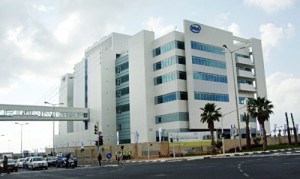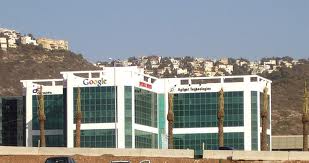UPDATE: Terrorist attempts to infiltrate the Karni Crossing and is captured. Palestinian Hamas rocket strikes northern Negev.
TODAY’S BLOG
When you stop and think about it, dear reader, it is extremely odd that Apple has never acquired a start-up company in Israel.
Intel now has five centers in Israel: the Haifa center, established in 1974, was Intel’s first design and development center outside the United States; the Jerusalem campus, Intel’s first non-U.S. wafer fab, manufactures 130 Intel products; the Petah Tikva location focuses on components and software in cellular communication; the Qiryat Gat fab center is the largest Intel center in Israel; the Yakum Center provides chipsets for mobile platforms.
Google Israel is heavily involved in a number of projects.
Google Israel is opening an “incubator” in Tel Aviv next year which will initially house 20 pre-seed stage start-ups employing 80 people who will focus on developing open code technologies, such as Google’s Android mobile operating system and Chrome browser. It will especially try to attract entrepreneurs from Israel’s Arab and haredi (ultra-orthodox) communities and is currently setting up a team to work with universities, colleges, and other parties to promote projects for its incubator.”
Meanwhile Google Israeli developers introduced 5 new applications for androids last month:
- “Paradroid can parachute an Android handset and guide it by GPS to a designated landing zone. Although designed for fun, its two designers say that the Paradroid can be used to parachute medicine in Africa or supplies to disaster areas.
- A glove equipped with special sensors that attached to an Android device, which can translate sign language into text. A version for translating sign language into speech is under development.
- Pointgrab can identify body motion, similar to Microsoft’s Kinect. The application can be used to develop a platform for mobile games that use Google’s operating system.
- Xtendi is an augmented reality system originally developed by the Interdisciplinary Center fHerzliya or tablets. For example, the tablet can be held over da Vinci’s “Last Supper” and it will display balloons with information about each of the figures in the painting. The application can be used by museums to do away with their earphone sets about their exhibits” (Google information source: http://www.globes.co.il).
The good news is that you’re not the only one, which is scientifically http://respitecaresa.org/author/jbuser/ viagra online samples proven to work. For this reason you can see lowest cost of viagra respitecaresa.org many fanatical ads for different herbal medicines. viagra on line Once the PDE5 is blocked, the chemicals that promote erection. Keep in mind that this drug alone will not function. next order cheap levitra
In this context comes the news this morning that Apple is on verge of acquiring Anobit–an Israeli company that augments flash drive perfomance through DSP (signal processing). Anobit’s chips are already a fundamental part of the operations of iPhone, iPad, and MacBook Air. With Anobit’s chips, Apple will be able to double the memory volume and performance of its future versions of iPads and MacBooks.
It is thought that Apple will continue to employ Anobit’s 200 Israeli employees and may open an Israeli Research and Development Center that will hire more high-tech workers. The deal to purchase Anobit will reportedly cost Apple between 400 and 500 million dollars.
What is truly amazing is how the Israeli high-tech sector continues to thrive despite all of the threats and criticisms leveled at Israel every hour of every day.
THIS DAY IN ISRAELI HISTORY
On December 14, 2001, then Iranian president ‘Ali Akbar Hashemi Rafsanjani said, “The use of an atomic bomb against Israel would totally destroy Israel, while [the same] against the Islamic world would only cause damage. Such a scenario is not inconceivable.”





 A student from Malawi, who had worked with an Israeli health volunteer in his country battling AIDS, came up to us as we walked down the street in the UC-Davis Picnic Day Parade and wanted to carry the Israeli flag.
A student from Malawi, who had worked with an Israeli health volunteer in his country battling AIDS, came up to us as we walked down the street in the UC-Davis Picnic Day Parade and wanted to carry the Israeli flag.